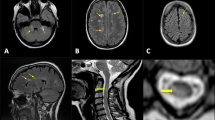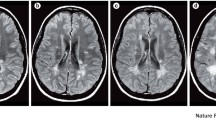Abstract
During the last two decades, conventional MRI (cMRI) has been extensively used in the diagnostic workup of multiple sclerosis (MS) patients, to monitor the natural history of the disease and to evaluate the efficacy of experimental treatments in randomised, controlled clinical trials. In the latter context, a major issue is represented by the high intra- and inter-individual heterogeneity of the MS patterns of disease activity and evolution. Such heterogeneity might explain, at least partially, the weak correlations found between clinical and cMRI aspects in patients with established MS, which is particularly evident when individual patients are considered. As a consequence, the definition of response to MS treatment, when based upon cMRI aspects, is still a challenging task. Although the use of cMRI-derived quantities as a standalone approach to define treatment options and strategies at an individual patient level should be discouraged, an evidence-based integration of clinical and cMRI data might be helpful in selected cases for an optimal work-up of patients undergoing immunomodulating or immunosuppressive treatments.
Similar content being viewed by others
Author information
Authors and Affiliations
Corresponding author
Rights and permissions
About this article
Cite this article
Rovaris, M., Filippi, M. Defining the response to multiple sclerosis treatment: the role of conventional magnetic resonance imaging. Neurol Sci 26 (Suppl 4), s204–s208 (2005). https://doi.org/10.1007/s10072-005-0515-5
Issue Date:
DOI: https://doi.org/10.1007/s10072-005-0515-5




